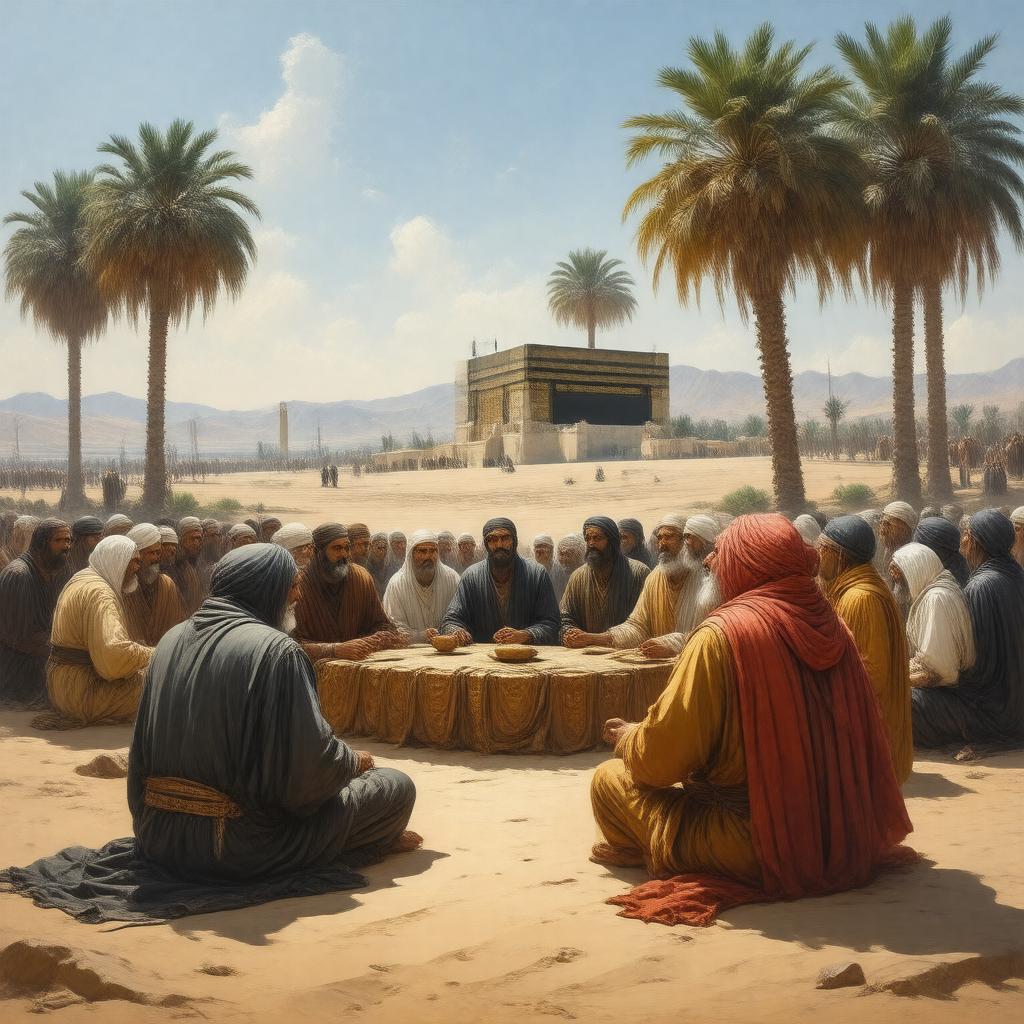
AI-created image
Statements (23)
| Predicate | Object |
|---|---|
| gptkbp:instanceOf |
gptkb:treaty
|
| gptkbp:brokenBy |
gptkb:Quraysh
630 CE |
| gptkbp:hasTerm |
10-year truce
Muslims allowed to return for pilgrimage next year Muslims return to Medina without pilgrimage No return of Muslim fugitives Return of Meccan fugitives |
| gptkbp:historicalSignificance |
paved way for conquest of Mecca
recognized Muslims as a political force |
| gptkbp:location |
gptkb:Hudaybiyyah
|
| gptkbp:purpose |
cease hostilities
|
| gptkbp:relatedTo |
gptkb:Quraysh_tribe
Islamic history Muhammad's life |
| gptkbp:resultedIn |
increased conversions to Islam
temporary peace between Muslims and Meccans |
| gptkbp:signedBy |
gptkb:Muhammad
gptkb:Quraysh_of_Mecca 628 CE |
| gptkbp:bfsParent |
gptkb:Muhammad
|
| gptkbp:bfsLayer |
5
|
| http://www.w3.org/2000/01/rdf-schema#label |
Treaty of Hudaybiyyah
|